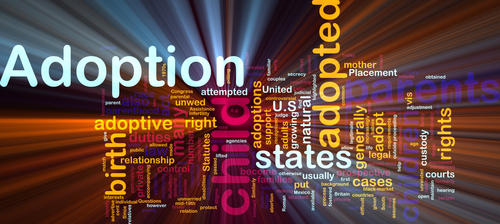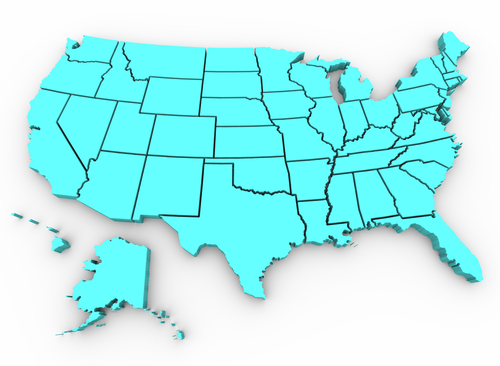 This is the 7th installment in a series by Virginia Cornwell, a A State of Ohio Grandparent Rights Lawyer and Ohio State Bar Association Certified Family Relations Specialist. Virginia is one of approximate 100 attorneys in Ohio to have received this honor.
This is the 7th installment in a series by Virginia Cornwell, a A State of Ohio Grandparent Rights Lawyer and Ohio State Bar Association Certified Family Relations Specialist. Virginia is one of approximate 100 attorneys in Ohio to have received this honor.
State of Ohio Grandparents Rights When the Parents Were NOT Married When the Child Was BORN
Ohio Revised Code 3109.12 says that if a child is born to an unmarried woman, the parents of the woman and any relative of the mother of the child may file a complaint requesting the reasonable visitation with the child. Relatives of the father cannot petition the court for visitation with the child unless paternity of the child has been established. When grandparent or relative visitation has been requested, the court may grant the visitation if it
determines the visitation is in the best interest of the child.
 The marriage or remarriage of the mother or father of a child does not affect the authority of the court to grant reasonable visitation with grandparents or relatives of either the father or the mother of the child. Note this does not apply to adoption. This means that if a mother or father is not supporting his or her child, or if the mother or father is not visiting his or her child (either/or, does not have to be both), then he or she and their entire family could lose access to the child.
The marriage or remarriage of the mother or father of a child does not affect the authority of the court to grant reasonable visitation with grandparents or relatives of either the father or the mother of the child. Note this does not apply to adoption. This means that if a mother or father is not supporting his or her child, or if the mother or father is not visiting his or her child (either/or, does not have to be both), then he or she and their entire family could lose access to the child.
Comparison of Ohio Grandparent Visitation Rights With Children
Who Were Born During Wedlock and Children Who Were Born Out of Wedlock
It is important to note the difference between non-parent visitation in situations where the child was born during marriage, and when the child was born out of wedlock. When the child was born during marriage, relatives and any other person (whether they are a relative or not) may file for visitation, but only if one of the parents have first filed an action for divorce, legal separation, dissolution, annulment, or child support. In contrast, when the child was born out of wedlock, relatives of the child’s mother have an automatic right to request grandparent visitation any time, and, if paternity has been established, relatives of the father have the same right. So, the law is more liberal about WHO may file for visitation when the parents of the child were married when the child was born, and the law is more liberal about WHEN a relative may file for visitation when the parents of the child were notmarried.
Grandparent Visitation in the State of Ohio
When One of the Parents of the Child has died.
Ohio Revised Code 3109.11 provides that if either the father or mother of an unmarried minor child is deceased (child must be unmarried, has nothing to do with the parents), the court may grant visitation to grandparents or other relatives of the deceased father or mother. It is VERY IMPORTANT to note that ORC 3109.11 also provides ” the remarriage of the surviving parent of the child or the adoption of the child by the spouse of the surviving parent of the child does not affect the authority of the court under this section to grant reasonable companionship or visitation rights with respect to the child to a parent or other relative of the child’s deceased father or mother.” This is contrary to what many people believe the law to be – but it is right there in the statute. If you are a grandparent, and your adult child is deceased, your right to request or receive grandparent visitation is NOT terminated by adoption or remarriage of the surviving parent. Check for yourself!
The other articles in the series can be seen here:
DISCLAIMER – read it!

 This is the 6th installment in a series by Virginia Cornwell, a
This is the 6th installment in a series by Virginia Cornwell, a  If the parents of the child in question were married when the child was born, are still married, and none of the above proceedings has been filed by the parents, then a grandparent does not have a right to even ask the court for visitation. When weighing the needs of a child, the law in the state of Ohio puts preserving the sanctity of an intact marriage ABOVE the need of the child to have a relationship with both sides of the child’s extended family. This causes distress to many grandparents who are alienated from their grandchildren due to conflicts between the parents, or one of the parents, and the grandparents. The bottom line is if the parents of the children are happily married, and the children are well cared for (not the subject of an abuse, neglect, dependency proceeding, or a Children Services case, then grandparents are going to have to work out their differences with the parents in order to have access to the child.
If the parents of the child in question were married when the child was born, are still married, and none of the above proceedings has been filed by the parents, then a grandparent does not have a right to even ask the court for visitation. When weighing the needs of a child, the law in the state of Ohio puts preserving the sanctity of an intact marriage ABOVE the need of the child to have a relationship with both sides of the child’s extended family. This causes distress to many grandparents who are alienated from their grandchildren due to conflicts between the parents, or one of the parents, and the grandparents. The bottom line is if the parents of the children are happily married, and the children are well cared for (not the subject of an abuse, neglect, dependency proceeding, or a Children Services case, then grandparents are going to have to work out their differences with the parents in order to have access to the child. Grandparents – read this next line carefully – short of being a dangerous criminal or child abuser yourself, the surest way to make sure you never get access to your grandchildren is to make a false report to Children’s Services. DON’T DO IT. You cannot unring that bell, and a great attorney is not going to be able to clean up that mess. If you pick up that phone to call the local Children’s Services in your county about your grandchildren, you need to have a darn good reason to do so. A reason that means the child is abused or neglected, not a parenting style that you do not believe is ideal.
Grandparents – read this next line carefully – short of being a dangerous criminal or child abuser yourself, the surest way to make sure you never get access to your grandchildren is to make a false report to Children’s Services. DON’T DO IT. You cannot unring that bell, and a great attorney is not going to be able to clean up that mess. If you pick up that phone to call the local Children’s Services in your county about your grandchildren, you need to have a darn good reason to do so. A reason that means the child is abused or neglected, not a parenting style that you do not believe is ideal. If an award of grandparents visitation rights is made, and circumstances later change, a grandparent can file to modify their grandparent visitation. The law in the state of Ohio says a court should not consider modifying an award of grandparent visitation unless the circumstances of the child have changed.
If an award of grandparents visitation rights is made, and circumstances later change, a grandparent can file to modify their grandparent visitation. The law in the state of Ohio says a court should not consider modifying an award of grandparent visitation unless the circumstances of the child have changed. This is the 5th installment in a series by Virginia Cornwell, a A
This is the 5th installment in a series by Virginia Cornwell, a A  Once upon a time there was a U.S. Supreme Court case called
Once upon a time there was a U.S. Supreme Court case called  On October 10, 2005, the Ohio Supreme Court , in the case
On October 10, 2005, the Ohio Supreme Court , in the case  When visitation is awarded by a court, it is generally a visitation schedule that is less than what would be awarded to a parent. There is a reason for this – a grandparent’s rights are not the same as a parent’s rights. Ohio courts want to be very clear about this, and do NOT want to send a signal to grandparents that the courts are the place to win a power struggle between and parent and a grandparent. In addition, if the court finds, (after being presented with evidence that is admissible in court under the state of Ohio Rules of Evidence and is NOT hearsay) that the grandparent is making statements or taking actions to alienate the parent from the child, the court may decline to grant visitation or severely limit visitation.
When visitation is awarded by a court, it is generally a visitation schedule that is less than what would be awarded to a parent. There is a reason for this – a grandparent’s rights are not the same as a parent’s rights. Ohio courts want to be very clear about this, and do NOT want to send a signal to grandparents that the courts are the place to win a power struggle between and parent and a grandparent. In addition, if the court finds, (after being presented with evidence that is admissible in court under the state of Ohio Rules of Evidence and is NOT hearsay) that the grandparent is making statements or taking actions to alienate the parent from the child, the court may decline to grant visitation or severely limit visitation. Of all of the reasons that parents have for avoiding court ordered grandparent rights, the most commonly litigated reason is that the parent’s assertion that the grandparent already has access to the child and there is no need for a court ordered schedule. If the grandparent is able to present credible evidence about why there is a need for the court ordered schedule, and establish that access to the grandchild was denied until the court papers were filed for grandparent rights, the parent’s assertion does not usually stand up under scrutiny. If the parent who has custody of the children would rather go to trial than have a court ordered grandparent rights visitation schedule, this often has the effect of convincing the court that there IS a need for a court ordered schedule for grandparent visitation.
Of all of the reasons that parents have for avoiding court ordered grandparent rights, the most commonly litigated reason is that the parent’s assertion that the grandparent already has access to the child and there is no need for a court ordered schedule. If the grandparent is able to present credible evidence about why there is a need for the court ordered schedule, and establish that access to the grandchild was denied until the court papers were filed for grandparent rights, the parent’s assertion does not usually stand up under scrutiny. If the parent who has custody of the children would rather go to trial than have a court ordered grandparent rights visitation schedule, this often has the effect of convincing the court that there IS a need for a court ordered schedule for grandparent visitation. This is the 4th installment in a series by Virginia Cornwell, a A
This is the 4th installment in a series by Virginia Cornwell, a A  Under Ohio Revised Code
Under Ohio Revised Code  In addition to filing a motion, everyone in the grandparent’s household must go through a background check, which usually involves being fingerprinted by Children’s Services. If Children’s Services will not cooperate with you, will not return your calls, and drags their feet about performing a background check, you are probably going to have to pay for one yourself. This can be done electronically, through fingerprinting. Request that the results be sent to you, not to Children’s Services. When you get the results, take them to court to show the judge or magistrate. At that point Children’s Services will probably say that the fingerprint results are unacceptable and the magistrate will probably ask Children’s Services why they didn’t return your calls and arrange for you to be fingerprinted. At that point, Children’s Services will probably follow through with your fingerprinting. So why did you go through this silly, expensive ordeal? So that Children’s Services would have to either do the background check or accept the one you had done.
In addition to filing a motion, everyone in the grandparent’s household must go through a background check, which usually involves being fingerprinted by Children’s Services. If Children’s Services will not cooperate with you, will not return your calls, and drags their feet about performing a background check, you are probably going to have to pay for one yourself. This can be done electronically, through fingerprinting. Request that the results be sent to you, not to Children’s Services. When you get the results, take them to court to show the judge or magistrate. At that point Children’s Services will probably say that the fingerprint results are unacceptable and the magistrate will probably ask Children’s Services why they didn’t return your calls and arrange for you to be fingerprinted. At that point, Children’s Services will probably follow through with your fingerprinting. So why did you go through this silly, expensive ordeal? So that Children’s Services would have to either do the background check or accept the one you had done. At this point, you are probably beginning to understand what a difficult ordeal that grandparents and other relatives have when trying to get custody of their grandchildren in a children’s services case. If you have the means to afford an attorney, you are well advised to get an attorney EARLY in the case, not when it’s too late. Because of the lack of information or incorrect information grandparents receive about their grandchildren when they are in the custody of children’s services, grandparents often wait too long to retain an attorney. An unfortunate example of this mistake is when grandparents fail to file a motion for custody BEFORE the children are determined to be abused, neglected or dependent by a court, and instead waiting until the children have been in the custody of the agency for many months, and the agency has filed a motion to terminate parental rights. If parental rights are terminated, grandparents may have no legal right or access to custody or visitation with their grandchildren. Waiting and hoping that things will work out for the best may cost these grandparents dearly. Instead, the best thing they could have done is to become involved early and if possible, hire an attorney.
At this point, you are probably beginning to understand what a difficult ordeal that grandparents and other relatives have when trying to get custody of their grandchildren in a children’s services case. If you have the means to afford an attorney, you are well advised to get an attorney EARLY in the case, not when it’s too late. Because of the lack of information or incorrect information grandparents receive about their grandchildren when they are in the custody of children’s services, grandparents often wait too long to retain an attorney. An unfortunate example of this mistake is when grandparents fail to file a motion for custody BEFORE the children are determined to be abused, neglected or dependent by a court, and instead waiting until the children have been in the custody of the agency for many months, and the agency has filed a motion to terminate parental rights. If parental rights are terminated, grandparents may have no legal right or access to custody or visitation with their grandchildren. Waiting and hoping that things will work out for the best may cost these grandparents dearly. Instead, the best thing they could have done is to become involved early and if possible, hire an attorney. Matters are even more complicated if the grandparent seeking custody lives outside of the state of Ohio. In order to place children outside of the state of Ohio, Children’s Services must comply with the
Matters are even more complicated if the grandparent seeking custody lives outside of the state of Ohio. In order to place children outside of the state of Ohio, Children’s Services must comply with the  This is the 3rd installment in a series by Virginia Cornwell, a A
This is the 3rd installment in a series by Virginia Cornwell, a A  Ohio Grandparents often have a very difficult time obtaining custody of their grandchildren when they are in the temporary or legal custody of a PCSA (Public Children’s Services Agency) in Ohio. It is very difficult to get the agency to tell you anything about the case. Often, the grandparents will get either no information, mixed information or even false information from the Children’s Services Agency. Most of the time however, they do not return your calls.
Ohio Grandparents often have a very difficult time obtaining custody of their grandchildren when they are in the temporary or legal custody of a PCSA (Public Children’s Services Agency) in Ohio. It is very difficult to get the agency to tell you anything about the case. Often, the grandparents will get either no information, mixed information or even false information from the Children’s Services Agency. Most of the time however, they do not return your calls. Now, getting information regarding a working fax number of the Children’s Services case worker assigned to your child’s case may be difficult in and of itself. You do not have a lot of time. Sometimes Children’s Services case move very quickly and if you do not act early in the case, almost right away, you are damaging your chances of being able to take custody of your grandchild if their parents lose custody.
Now, getting information regarding a working fax number of the Children’s Services case worker assigned to your child’s case may be difficult in and of itself. You do not have a lot of time. Sometimes Children’s Services case move very quickly and if you do not act early in the case, almost right away, you are damaging your chances of being able to take custody of your grandchild if their parents lose custody.